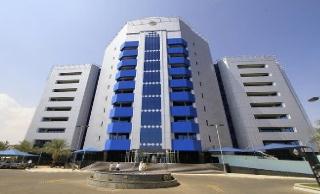Sudan’s Central Bank fires southerners in the north
By Julius N. Uma
April 30, 2011 (JUBA) – The fate of South Sudanese, who hitherto, worked as employees in the Khartoum-based Central Bank remain in jeopardy after management reportedly, issued them with termination letters, Sudan Tribune has learnt.

The plebiscite was a key part of the Sudan’s 2005 Comprehensive Peace Agreement (CPA); the accord which ended over two decades of a bloody civil war between north and south of Africa’s largest country.
Recently, southern legislators serving in the country’s National Assembly were also denied participation in the August House, after the northern leadership claimed they belonged to the southern assembly after the referendum.
John Luk Jok, the southern minister for legal affairs and constitutional development told Sudan Tribune that there is a need for the expansion of the current Southern Sudan Legislative Assembly (SSLA) to accommodate the bulk of the southern legislators from the National Assembly.
“We have no option. If the Khartoum government says they do not want our MPs [Members of Parliament] to make contributions in the National Assembly, then we just have to accept them back and accommodate them in our Parliament. We also need to find a way of paying them salaries,” the minister said.
Juma Malok, who returned from Khartoum where he worked as a court magistrate, told Sudan Tribune that the majority of southerners currently holed up in north of the country have embarked on an exit strategy to vacate the region before the July independence declaration of the south.
“What do you do when you have no clue of what to do next? It’s better to define your next move before things get out of order. In any case, southerners were well aware of all these and it was simply a matter of time,” Malok said.
Established in 1956 by the American Federal Reserve Bank, the Central Bank emerged to replace all those institutions, which carried out its functions of regulating currency issuance and planning monetary and financial policies to serve economic sectors, and build a strong banking system capable of responding to Sudan’s economic development needs. It became independent in 1960.
(ST)
